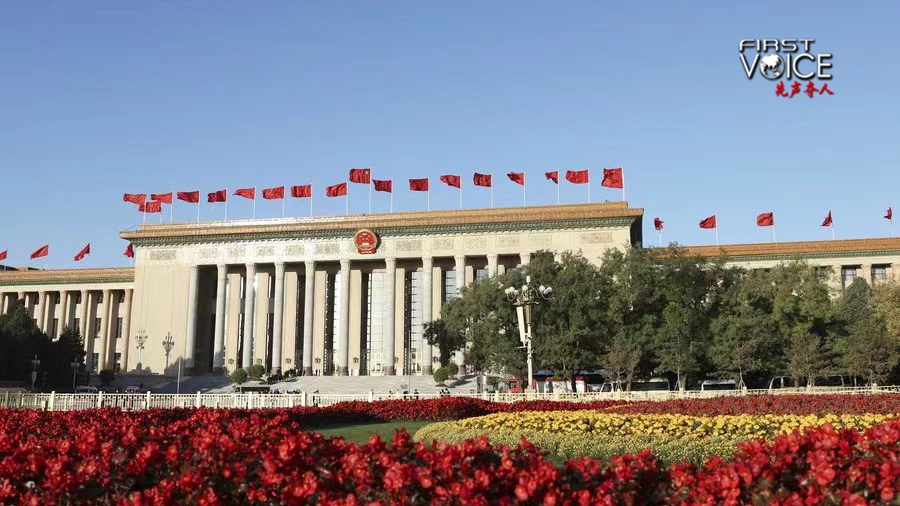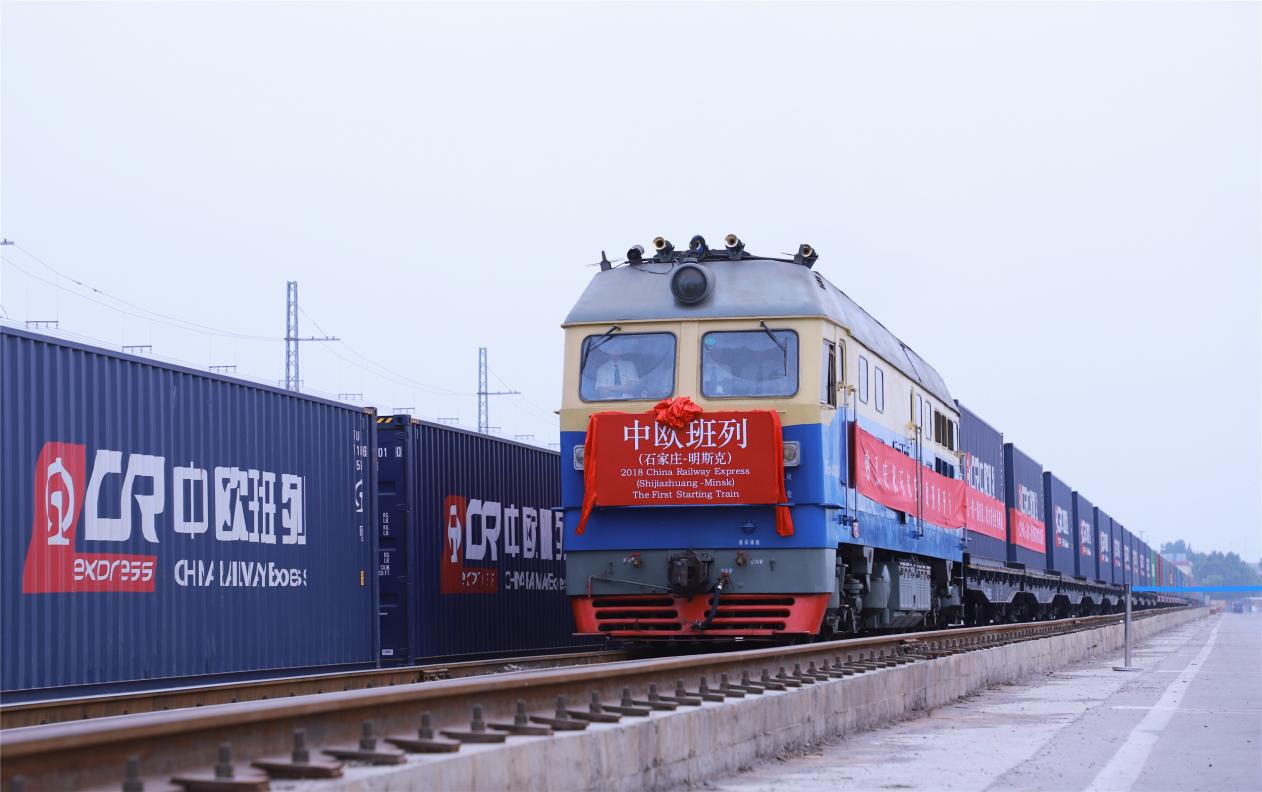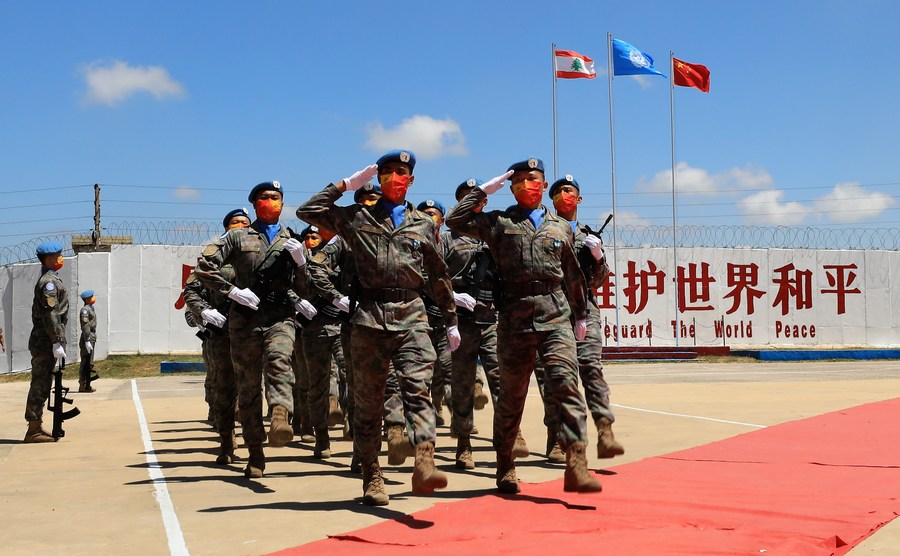
The Great Hall of the People in Beijing, capital of China. [Photo/Xinhua]
Editor's note: CGTN's First Voice provides instant commentary on breaking stories. The column clarifies emerging issues and better defines the news agenda, offering a Chinese perspective on the latest global events.
By Ma Feng
The third plenary session of the 20th Central Committee of the Communist Party of China (CPC) that concluded recently addressed the further deepening reform comprehensively to advance Chinese modernization. According to the communique released Thursday, China is entering a crucial period for building a great nation and achieving national rejuvenation through modernization.
The communique emphasized the importance of reform and opening up, stating: "Chinese modernization has been advanced continuously through reform and opening up, and it will surely embrace broader horizons through further reform and opening up. We must purposefully give more prominence to reform and further deepen reform comprehensively with a view to advancing Chinese modernization in order to better deal with the complex developments both at home and abroad, adapt to the new round of scientific and technological revolution and industrial transformation, and live up to the new expectations of our people."
Chinese modernization with openness
In recent years, China has welcomed a growing number of foreign visitors, thanks to its visa-free entry policy. These visitors have shared their experiences on social media, capturing the vibrant nightlife in Beijing's Liangmahe, the street food in Shanghai, drone-delivered meals in Shenzhen, the futuristic elevated light rail transit system and driverless taxis in Wuhan. These snapshots showcase China's dynamic vibe and the openness and confidence of its people.
China's commitment to openness underpins its appeal as a popular tourist destination. As the communique stated: "Opening up is a defining feature of Chinese modernization. We must remain committed to the basic state policy of opening to the outside world and continue to promote reform through opening up. Leveraging the strengths of China's enormous market, we will enhance our capacity for opening up while expanding cooperation with other countries and developing new institutions for a higher-standard open economy."

A China Railway (CR) Express cargo train leaves for Minsk from Shijiazhuang, north China's Hebei province, June 2, 2018. [Photo/Xinhua]
Amid sluggish global economic growth and rising protectionism, China's open development stands as a global public good. The Belt and Road Initiative (BRI), a key element of China's international cooperation, has facilitated the movement of people and goods among participating countries, delivering tangible benefits. China has signed BRI cooperation agreements with over 150 countries and 30 international organizations. In 2023, China's trade in goods with BRI countries reached 19.5 trillion yuan ($2.68 trillion), a 2.8 percent annual increase, accounting for 46.6 percent of its total imports and exports.
Emphasizing the significance of openness, the communique further stressed the high-quality cooperation under the BRI to help partner countries navigate the headwinds of anti-globalization and achieving common open development. China's vast domestic market will undoubtedly become a significant opportunity for global development.
Chinese modernization with peaceful development
During his recent state visit to China, President Umaro Sissoco Embaló of Guinea-Bissau praised China for never engaging in colonialism and its non-interference in other countries' internal affairs and respectful treatment of smaller nations. He noted that China's cooperation projects, such as schools, hospitals, and roads, benefit African people.
Chinese modernization contrasts with the conflict-driven approach of Western modernization. China's peaceful and open development offers stability, certainty, and new hope for human modernization. The communique emphasized: "Chinese modernization is the modernization of peaceful development." Among the world's major countries, China is unique in its consistent record of peace, deeply ingrained in its national identity. Only by adhering to peaceful development can a mutually beneficial and open global development system be truly established.

Chinese peacekeepers march at a medal parade ceremony in Hanniyah village, southern Lebanon, July 1, 2022. [Photo/Xinhua]
In a meeting with President Xi Jinping in July 2024, UN Secretary-General António Guterres thanked China for its support of the UN, commitment to multilateralism, and constructive role in promoting world peace and development. He stated that the future of humanity largely depends on China.
Chinese modernization is guided by the principle of independence, self-reliance, and developing and strengthening itself through the hard work and innovation of its people. It combines internal motivation with the peaceful use of external resources to achieve national development without oppressing other nations or plundering their resources. Instead, it provides support and assistance to other developing countries within its capacity.
Chinese modernization with responsibility for the future development of humanity
Over the past century, the world has endured two world wars and the Cold War that divided humanity into two opposing blocs and put it under the constant threat of nuclear war. Post-Cold War, the Western development model was globally promoted, leading many developing countries to adopt Western systems, values and neoliberal ideologies under political pressure, often losing control over their own development.
China's pursuit of peace and development aligns with the aspirations of developing countries for modernization. China's global initiatives and proposals represent significant advancement in human values and its successful development reflects its responsibility for humanity's progress and provides a new alternative to the development path.
The third plenary session of the 20th CPC Central Committee reaffirmed China's commitment to pursuing an independent foreign policy of peace and the promotion of a human community with a shared future. The communique called for pursuing the Global Development Initiative, the Global Security Initiative, and the Global Civilization Initiative to foster an equal and orderly multipolar world and universally beneficial and inclusive economic globalization.
Through the process of further comprehensively deepening reform to advance Chinese modernization, China aims to lead a new wave of globalization through high-level institutional openness, reshaping the world economic landscape in collaboration with the Global South countries and forging a new path of globalization characterized by inclusiveness and mutual benefit.
The author Ma Feng is an associate research fellow at the National Academy of Chinese Modernization, Chinese Academy of Social Sciences.

 中文
中文



